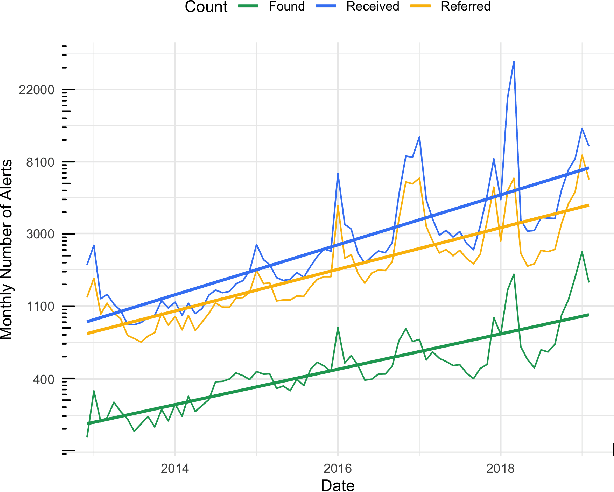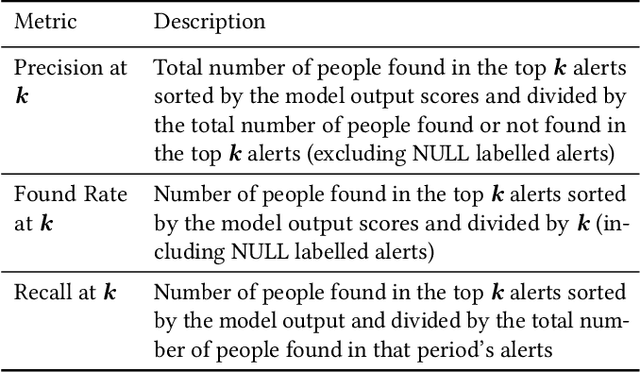A Recommendation and Risk Classification System for Connecting Rough Sleepers to Essential Outreach Services
Paper and Code
Jul 30, 2020



Rough sleeping is a chronic problem faced by some of the most disadvantaged people in modern society. This paper describes work carried out in partnership with Homeless Link, a UK-based charity, in developing a data-driven approach to assess the quality of incoming alerts from members of the public aimed at connecting people sleeping rough on the streets with outreach service providers. Alerts are prioritised based on the predicted likelihood of successfully connecting with the rough sleeper, helping to address capacity limitations and to quickly, effectively, and equitably process all of the alerts that they receive. Initial evaluation concludes that our approach increases the rate at which rough sleepers are found following a referral by at least 15\% based on labelled data, implying a greater overall increase when the alerts with unknown outcomes are considered, and suggesting the benefit in a trial taking place over a longer period to assess the models in practice. The discussion and modelling process is done with careful considerations of ethics, transparency and explainability due to the sensitive nature of the data in this context and the vulnerability of the people that are affected.
 Add to Chrome
Add to Chrome Add to Firefox
Add to Firefox Add to Edge
Add to Edge